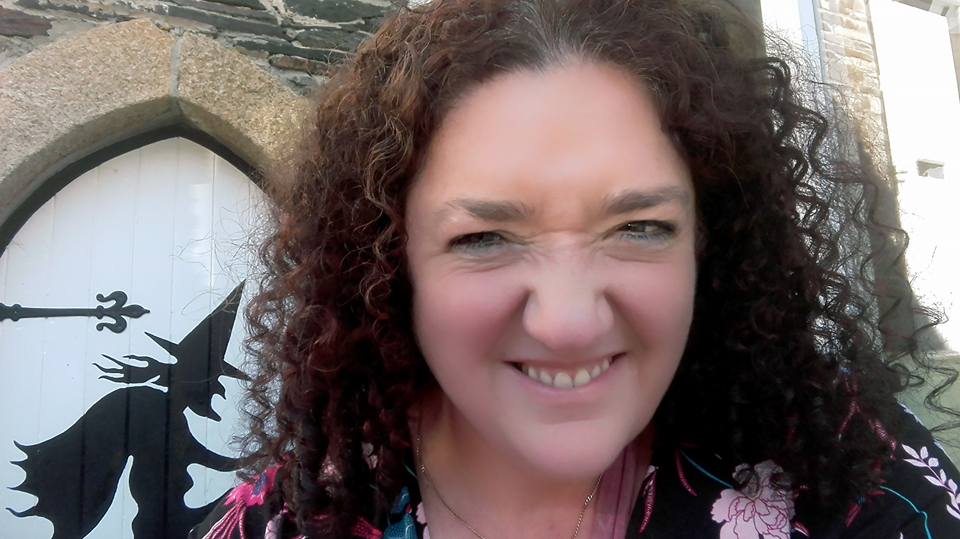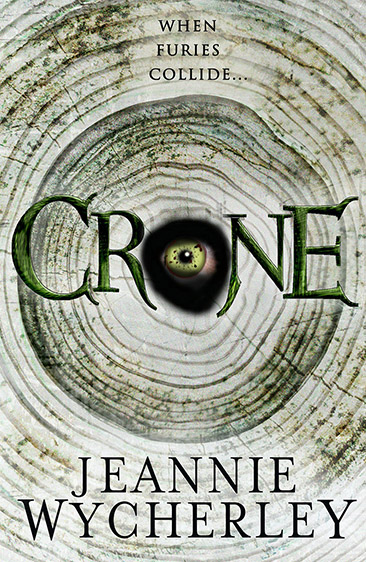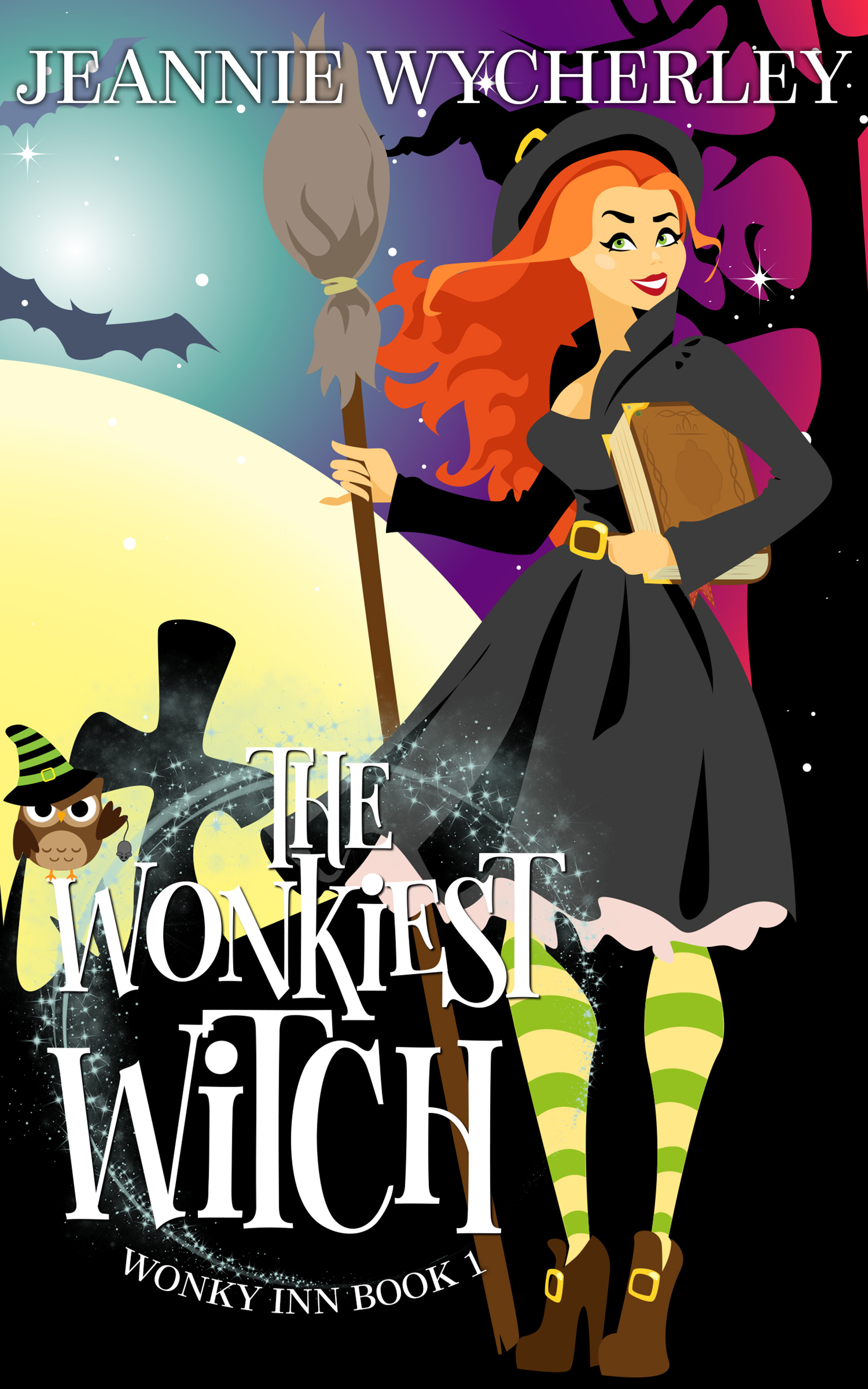This week, its the turn of another author from Devon, Jeannie Wycherley.
Loving the landscape: how living somewhere between the forest and the sea has shaped my writing
Seven years ago I found myself in a bad way. Severe anxiety, exacerbated by workplace stress, with depression to boot. I had a long commute—in the Midlands—to and from work, and was sleeping for less than four hours a night—some nights not at all. I kept myself awake and compos mentis during the day with showers and caffeine, and the pure acid burn of noradrenaline.
Then horror of horrors, it was decided by the powers-that-be that everyone on my grade at work would need to reapply for their jobs. I didn’t get mine. I thought my world had ended. My line manager offered me a retrograde step back, or redundancy. I remember feeling absolutely humiliated, but two thoughts rang clear as a bell in my sleep-deprived brain.
One: I wanted to spend more time with my dogs.
Two: I wanted to go home.
Looking back I probably should have been considering other things (like what my husband would say about it all and how we would manage our mortgage) but the urge to be free and in an environment that would nurture my soul was something I appeared to be screaming for.
Within nine months my husband had taken early retirement, our house had sold, and we were heading down the M5 to a new—much simpler—life. I say simple because house prices in parts of the Midlands are not commensurate with what you’ll find in the south-west and we ended up renting. At the whim of landlords, we had to move a few times—not easy with three dogs.
But perhaps that was the greatest gift of all.
I originate from South Devon. My Mum’s family are from Paignton, Brixham and Stoke Gabriel. I went to school in Newton Abbott. But for a variety of reasons, my husband and I chose to settle in East Devon (AONB). It is stunningly beautiful, and that’s a large part of why the landscape here has directly impacted on my writing. So much so, in fact, that one reader contacted me to say that they see the forest in Crone as an entire character in its own right.
Until returning to Devon most of my writing was angry and dark. You can read one of my short stories Managing Murder in my collection, Deadly Encounters, that explores my feelings about redundancy *she titters grimly*. I had one full-length novel (still unpublished) that explored the themes of greed, isolation, and loneliness in the city, and it perfectly sums up where I was at that time.
But arriving in my little backwater, gone were the huge Victorian edifices and wide boulevards, the jostling of thousands of people desperate to fit in and yet be noticed at the same time, the ring roads and bottlenecks, bus lanes and trams, slow-moving traffic, the rush rush rush of the 8-6 (because no-one who had the managers I had, ever got away with a 9-5).
In their place were slow moving people, tiny cottages, country lanes, tractors and trees.
And suddenly the apocalyptic literary landscape of my mind changed. I had time. I had space. Now I could give myself permission to breathe. The forest nurtured me, with the abundance of soft greens and browns, and its good clean air, and at the same time, it began to inspire me. The tangled undergrowth, the twisted roots, the gnarled branches, the sheer size of some of the older oak trees. There is something incredibly human and ancient about trees—they zing with life, they have stories, they are sentinels.
So imagine—you’re gazing into the undergrowth one day, perhaps the light is failing. It’s been an overcast day anyhow. You thought you heard a squirrel or something moving, but not at ground level. So you shift your gaze, you peer between the knotted branches, among leaves that tremble ever so slightly. At first, you think your eyes are deceiving you; that this is some trick of the light, but as you refocus, you see her. An old woman, skin the colour of aged parchment, hooded eyes, viscera as black as ink.
Crone grew directly from the East Devon landscape. From the woods and forests around Ottery St Mary (Abbotts Cromleigh in the novel) and in the Blackdown Hills (which is where I wrote most of it). I sometimes flip through my copy, and read extracts, wondering where the language came from, but truthfully? I was so immersed in the landscape that the words configured themselves and I was simply a conduit. If I found myself with writer’s block, I’d venture out for a walk, and stare at the root patterns of trees, or just gaze into a tangle of bramble. It worked every time.
CRONE – Jeannie Wycherley – 2017
The first 500 words
The cracking and snapping of dry bones reverberated through the stillness of the night. In the freezing air, at the very heart of the wood, in the slumped ruins of a long-forgotten dwelling, something dark began to manifest itself.
Little more than a mummified corpse, she unfolded her outer layer in a shower of dust and dry mould. Her skin, what remained of it, creaked like ancient leather and her flesh stretched taut over foul stringy innards. Then reaching, stretching, groaning, retching—she hauled herself upright. Once risen, she floated inches above the ground, while the mist—salty from the nearby sea—enveloped her like a pall and covered her foul nakedness.
She slipped out of her shack, and the wildlife in the undergrowth shrank from her black charisma, keeping their distance from her rancid stench, the stink of putrefaction.
In the treetops, caught out by her rapid manifestation, an owl blinked uneasily. Fearful, he observed her as she moved beneath him, then hopeful of evading her gaze he casually pivoted his head, pretended she was unseen and he was unseeing. But Aefre, even in her newly woken state, was both observant and deadly.
She was fast, lashed out at the owl, a missile of energy directed from her mind. His body exploded in a cloud of downy feathers. Her deformed claw-like fingers caught his remains as he fell from his perch, and she stuffed him into her mouth, whole. She chewed once, twice. Swallowed. A single line of blood dribbled from her chin, and the thinnest layer of fresh skin started to form a mouldering translucent veneer.
There was a halo of light to the east. Civilisation. For Aefre, the time was ripe. She was awake. It was time to bask in the thrill of the hunt. This time she would locate her sisters and join them in a merry dance of carnage.
First things first, however. She needed sustenance. She headed for town. She would find everything she needed there.
***
The boys tumbled out of the multiplex, blinking in the garish sodium lights of the car park, high on an adrenaline kick after enjoying the latest blockbuster. Max was grateful that James now had a driving licence and a car to go with it and they weren’t dependent on the non-existent bus service. It was hell being stuck in Abbotts Cromleigh with nothing to do.
Max was completing his A levels this year, and come September he would be off to University in a city where you didn’t need a car. Everything he needed would be on his doorstep. Live music venues, sporting facilities: Sheffield promised to be everything his small Devon home town couldn’t be.
He’d miss The Storykeeper though. Sheffield had bookshops, sure, but The Storykeeper was something special. It was housed in a higgledy-piggledy Elizabethan structure that had been added to time and again over the years, and thus appeared to stretch back and up endlessly. Shelves meandered like mysterious rivers throughout the building
~~~~
More recently I published Beyond the Veil. I used the fictional name of Durscombe for the seaside town, but the landscape is easily recognisable as Sidmouth to anyone who knows it. For literary purposes I changed Connaught Gardens to the Victorian Garden Cemetery, and I put a huge thatched inn on the promenade (I borrowed The Blue Ball Inn from Sidford) but otherwise the map of the town in my head is Sidmouth. Beyond the Veil teams a sceptical detective investigating a murder, with a woman who claims to be a witch. She makes matters worse. The use of the town is highly effective. Who knew Sidmouth could be so spooky?
Extract from Beyond the Veil – Jeannie Wycherley 2018
The Victoria Gardens Cemetery, built during the mid-1860s on the site of the old Victoria Gardens in order to catch the overspill from St Michael’s Church in Durscombe, was a sprawling homage to the celebration of death. In the oldest part of the cemetery, tombstones of all shapes and sizes, once neatly laid out with typical Victorian precision, had partially sunk into the sandy earth. They huddled together under the shelter of trees, or nestled higgledy-piggledy and forgotten among tangled undergrowth. Moss and lichen clung to stone surfaces, obliterating names, dates, and histories.
Heidi limped around the newer area of the cemetery, with half a mind to search for her aunt’s gravestone. Here, well away from the cliffs, the grass was neatly manicured, and bunches of flowers and wreathes, many of them bright and fresh, paid colourful respect to those more recently departed.
As a teenager, Heidi’s first love had been photography, and she was lured to the more sombre and antiquated part of the gardens, with its elaborate tombs and mausoleums. She hadn’t expected to find such a wonderful treasure trove of Victoriana here in East Devon, but here it was, and sadly Heidi didn’t have a decent camera on her.
She took a few shots here and there with her mobile, determined to upload them to her laptop once she returned home later. She didn’t imagine the images would require much fiddling to achieve atmosphere and mystery.
The morning started out sunny and mild, but by lunchtime the weather had changed. A sea mist rolled in and the drizzle became incessant. Now the trees, many still clinging onto their leaves, were heavy with moisture. This far south, the summer was lingering, loath to let go completely. While in Birmingham, Heidi imagined winter would have already extended its death grip.
She snapped away, taking shots of spiders’ webs glistening with tiny beads of water among the bushes and brambles, looking for all the world like nature’s most spectacular diamonds. Heidi crouched, her leg painful, trying to create interesting angles.
A soft sound behind her made her jump up, startled. She hadn’t seen a soul since arriving at the cemetery, not even a groundskeeper, even though she’d been here for an hour at least. With difficulty, she righted herself and turned about. A young woman stood approximately six metres away, regarding her with open curiosity.
A little younger than Heidi, the other woman appeared to be mid-twenties at most. She wore her straight hair loose, and it was so black, that Heidi reasoned it could only have been dyed that colour. This contrasted starkly with her pale face, painted white for maximum ghostly effect. She was dressed head to toe in black too: a long black maxi dress, with a lace ruffle at the hem, and a three-quarter length black coat in velveteen. Tough lace-up boots with thick soles and a two-inch heel finished off her wardrobe. Her eye make-up was smoky and exquisitely finished, and even her nails were painted black. She was adorned with silver jewellery, around her neck and wrists, on her fingers, and plenty in her ears and nose.
“I’m sorry,” the young woman said, her voice light and musical. “I didn’t mean to startle you.”
Heidi laughed in a self-deprecating way. “My fault. I was miles away.”
The two women stared at each other. Heidi couldn’t help herself, she was quite taken with the woman’s appearance. While she wasn’t garbed in Victorian dress, she could almost pass as an apparition flitting among the tottering monuments. Heidi itched to take a photo of her, but she wasn’t forward enough to ask.
“Were you looking for someone in particular?” the younger woman asked.
Heidi puzzled over the question. The way the younger woman phrased it made it sound as though Heidi would find a range of people here, perhaps both dead and alive. She shook her head.
“I mean, were you looking for me?”
This was even more confusing. “No, I wasn’t really looking for anyone. I mean … well my aunt is buried out in the newer part of the gardens, but I was just pottering around back here, taking some photos.”
“Oh, I see.” The younger woman seemed oddly disappointed. “That’s funny. You know I was told I’d be receiving a visitor today, a stranger, but if it isn’t you, it must be someone else.” Heidi wondered who had told her that and considered asking, but the conversation was getting weirder by the second. “It’s just that I’ve never seen you in the cemetery before. Do you live locally?”
How much time did this odd woman spend in the cemetery, Heidi wondered. “I’m staying in Durscombe for a little while,” she volunteered, “so I suppose you could say that I temporarily live locally, yes.”
“While you get better? You’ve been in an accident, right?”
Was it that obvious? Heidi guessed so. She pulled at her beanie self-consciously. “In a manner of speaking,” she said unwilling to discuss the Bullring incident.
“That’s why I thought it was you.” The young woman sniffed. “Curious.” She jumped down from the monument she was standing on. “I’m Cassia Veysie,” she announced, striding towards Heidi, her hair and coat flowing. “That large memorial behind you belongs to my family. My grandmothers are interred there. Were you taking a photo of it?”
Heidi regarded the impressive monument with its ornate stone pillars. It was a family tomb, clean in comparison to the others around, free of moss, with the ground around it swept free of leaves.
“No, I was trying to catch a photo of the spider web here, on this bush. Do you see?” Heidi pointed it out, and Cassia came closer to have a look.
“Oh yes! That’s a good one. You should see the ones we have first thing in the morning when the sun rises. They can be huge! Extremely impressive, but oddly eerie at times.”
“Do you hang out here a lot?” asked Heidi.
“Hang out? You could say that. I live here.”
~~~~
There are other horror or occult novels and novellas forthcoming for 2019 of course, but at the moment I’m writing a five book cozy series—think amateur sleuth, witches, ghosts—which is such good fun. It’s clean, no swearing, no blood or gore. Book One, The Wonkiest Witch, is being really well received, especially in the USA. Again the action takes place in an East Devon village—‘Whittlecombe’ in this case—and so I’ve been able to use really quirky Devon and English situations, phrases and customs, as well as the landscape of course.
For me, writing is a form of mindfulness that has helped me recover from some unfortunate workplace trauma. I lose myself in the worlds I create, and fortuitously, thanks to the stunning backdrop I wake up to every morning, weaving the landscape into my worldbuilding is a piece of cake.
Or a cream tea maybe?
Bio
Jeannie Wycherley is the author of Amazon UK bestseller Crone, as well as Beyond the Veil and the Wonky Inn Books. She has published a non-fiction book on pet bereavement, Losing my Best Friend, and a collection of short stories, Deadly Encounters. She lives somewhere between the forest and the sea in East Devon with her long-suffering husband and three dogs, loves all things witchy, hugs trees, and cooks soup in a cauldron.
Book Links
Crone: http://mybook.to/CroneJW
Beyond the Veil: http://mybook.to/BTV
The Wonkiest Witch: Wonky Inn Book 1: http://mybook.to/WW1
Deadly Encounters: http://mybook.to/DeadlyEncounters
My links
Facebook: https://www.facebook.com/jeanniewycherley/
Twitter: https://twitter.com/Thecushionlady
Follow me on Amazon: http://author.to/jeanniewycherley
~~~~
Thanks, Jeannie, for a great post. I hope you all enjoyed it. And the extracts are brilliant!!!
While you’re here, why not have a look around the site? There are FREE things and a whole lot more, just follow the links at the top of the page.
If you want to be featured in a future Showcase, where you can write about whatever (within reason) you want, then please let me know. Use the comment box below and I’ll get back to you.
You can catch up on previous Showcase posts by clicking HERE
Don’t miss next Thursdays Showcase post, and my musings every Monday.
Have a great week,
Richard.
![]()






Marje
Must connect with this author loved and connected with her showcase. 🙂